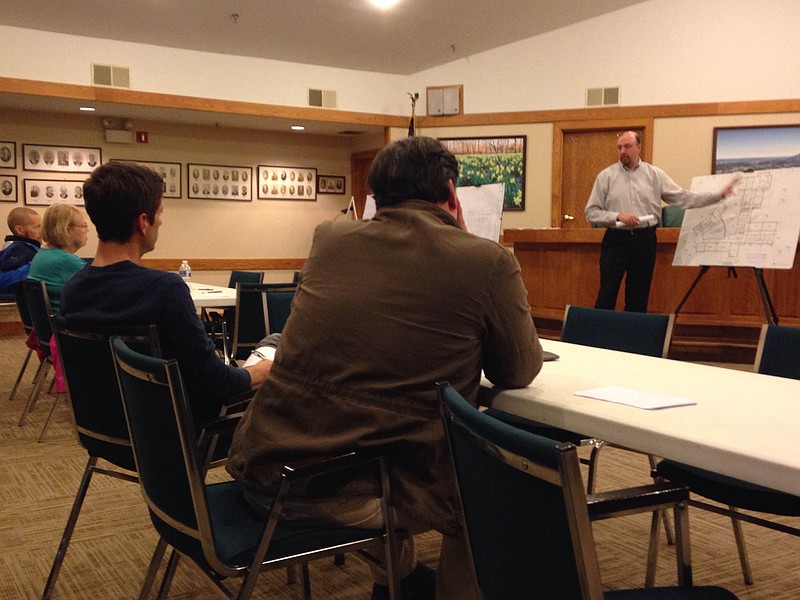With decisions still to be made about the future of the Mountain Arts Community Center and the coming loss of Hall tax revenue, town of Signal Mountain officials are examining the impact these changes will have on the town's budget and property tax rate.
Right now, the town's property tax rate sits a little above $1.56 per $100 of assessed value. But with the 2007 loan for construction of Signal Mountain Middle/High School expected to be completely paid off next fiscal year, which begins July 1, the 15 cents allotted to help pay off that loan will evaporate, reducing the property tax to a base rate of $1.41 per assessed value, said Town Manager Boyd Veal.
Still, any plan the Town Council makes to resolve the long-debated issue of where to house the MACC's programs will need to be financed.
Based on the total assessed value of the properties within the town, each penny of property tax generates about $25,000, Veal said. If the council decided to spend $4 million on a solution for the MACC, the town would be required to pay $200,000 a year, plus interest, in debt service, he explained. That would require a property tax increase of 11 cents over an estimated 20 years, bringing the tax rate up to $1.52 per $100 of assessed value.
"So you've got a net-positive - we're in better shape than we were," Veal said of that rate vs. the current rate.
Despite the example, Vice Mayor Dick Gee said no decisions have been made regarding the various MACC scenarios, and the Town Council has not yet settled on how much it is willing to spend.
"[Veal] has used that number to guide him to develop some consistency," said Gee, who admitted he thought $4 million might be too large an expenditure. "But the council, at this point, has not indicated - at all - what it's willing to commit to."
Whether the council chooses to spend more or less than $4 million, MACC costs won't be the only financial concern come next fiscal year.
In April, Tennessee legislators voted to eliminate the state's 6-percent Hall tax over a period of six years. With the first 1-percent decrease set to take effect in mid-2017, town officials will soon need to decide how to make up for the loss of Hall tax revenue, which Veal said has generated an average of $750,000 each year for the last three years.
"You have two options: You cut services or you raise taxes," he said regarding the deficit the loss will leave.
Replacing the lost $750,000 would require a property tax rate bump of 30 cents, said Veal, but if the council decided to go that route, the options to implement that increase could vary. The council could decide to increase the tax rate by 5 cents each year over the next six years, increase it by 10 cents each year for the next three years, implement an increase of 30 cents next year to create additional revenue, or settle on any number of potential scenarios.
"We have to know what our revenue position's going to be," Veal said. "In the next very few months, that's a decision that has to be nailed down."
Though Veal said debt obligations for the new Public Works facility and the construction of a new fire station have already been built into the current property tax rate, he said that revenue does not address other expenditures, like the increased costs for operation and personnel they will necessitate.
"All that has to be part of the conversation," said Veal. "As we start these discussions, that has to be part of it - that we take into account our financial scenarios as we move forward."
